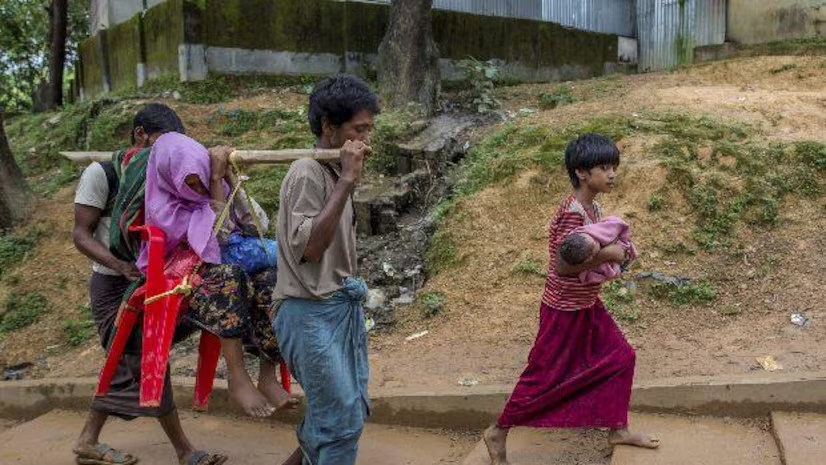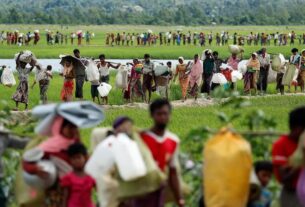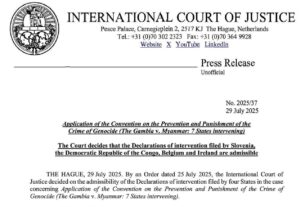After enduring years of brutal oppression at the hands of the Myanmar military, the Rohingya Muslim population is once again under severe threat—this time from a different force: the Arakan Army (AA). Once seen by many as a revolutionary group fighting for the rights of ethnic Rakhine people, the AA is now accused of targeting and abusing the already-vulnerable Rohingya community in Myanmar’s Rakhine State.
A History of Suffering
The Rohingya, a Muslim minority group long denied citizenship and basic rights by the Myanmar state, have faced systematic violence for decades. The most infamous wave of persecution came in 2017, when a brutal military crackdown led to the displacement of over 700,000 Rohingyas to neighboring Bangladesh. The United Nations later described this as a “textbook example of ethnic cleansing.”
Now, eight years later, many Rohingyas still live in crowded refugee camps in Cox’s Bazar, Bangladesh, with little hope of returning home. However, for those who remained or returned to Rakhine State, a new fear has emerged: the rise of the Arakan Army.
Arakan Army: Liberation Force or New Oppressor?
The Arakan Army was formed in 2009 with the goal of securing greater autonomy for the ethnic Rakhine people. In recent years, it has gained significant ground in the region, successfully ousting many positions held by Myanmar’s military forces. While this was initially welcomed by some as a step toward regional stability, reports from inside Rakhine tell a different story for the Rohingyas.
According to multiple sources on the ground, including displaced persons and rights groups, the AA has imposed harsh restrictions on Rohingya communities. There are alarming accounts of:
-
Forced taxation on Rohingya businesses and families
-
Extortion, forced labor, and recruitment of Rohingya youth into armed ranks
-
Beatings and raids on homes under false accusations
-
Burning of abandoned Rohingya houses in newly controlled areas
-
Complete restriction on freedom of movement and humanitarian aid
Karim Ullah, a Rohingya man who recently fled Maungdaw, told local media, “Since the Arakan Army took control, I’ve been unable to work. There’s no medical care, and AA members raid our homes, beating us and accusing us of collaborating with the Myanmar army.”
Fear of a New Exodus
The situation is deteriorating fast. In recent weeks, hundreds of Rohingyas have reportedly crossed into Bangladesh again, fearing a renewed cycle of violence. This comes at a time when host countries like Bangladesh are already under pressure to reduce the refugee population, not expand it.
Local leaders in Ukhia and Teknaf—areas hosting the world’s largest refugee camps—have voiced concern that a fresh influx of Rohingya will strain already limited resources and heighten tensions with local communities.
International Silence and Inaction
Despite these emerging threats, the international response remains muted. Human rights organizations have called on the global community to not turn a blind eye to the actions of the Arakan Army simply because it opposes the Myanmar junta.
“The Rohingya must not be forced to choose between two oppressors,” said a spokesperson from the Burmese Rohingya Organisation UK (BROUK). “The world must hold all actors accountable, including ethnic armed groups who violate human rights.”
A Plea for Protection and Justice
The plight of the Rohingya is a painful reminder of how statelessness, discrimination, and geopolitical apathy combine to keep entire communities in a state of permanent vulnerability.
As the Arakan Army consolidates its control in Rakhine, the international community faces a critical choice: remain silent and complicit, or take urgent steps to ensure that those once victimized by the state are not now terrorized by insurgents.
Without swift action, the Rohingya may be forced into another round of displacement, and the promises of justice and safe repatriation will be reduced to hollow rhetoric.




